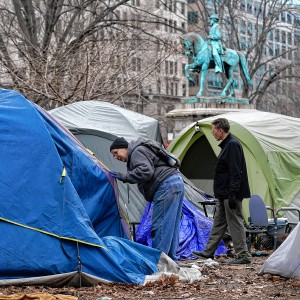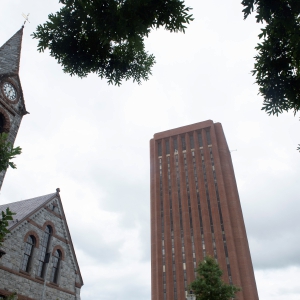Julian Hynes: Why urban forests are key to fighting climate change

Lum3n/via Pexels Lum3n/via Pexels
| Published: 01-20-2024 6:00 PM |
In case you haven’t noticed the record rain and flooding this summer, or the 50 degree days in January, climate change is upon us. The effects of this global crisis have arrived, now the question becomes how to build resilience, while lowering emissions to prevent further warming.
In Massachusetts, we have made a legal requirement to achieve net-zero greenhouse gas emissions by 2050. A recent article in the Gazette, “New reports inform emissions fighting debate: Forests play a key role” [Jan. 4] speaks to the importance of forests in reducing carbon emissions, as our state's forests absorb over 1.2 gigatons of carbon.
Fifty-six percent of land in Massacusttes is forested, which includes the many urban forests maintained by cities and towns across the commonwealth. Passive management strategies generally are best for allowing our forests to age and capture the most carbon. However, tree planting, biodiversity efforts and wood resource management, such as wood banks, are important management strategies that tree committees and tree wardens across our state are working to address with limited resources and staffing.
Public trees across our state are managed by a variety of volunteer and public works resources, but a significant amount of forested lands across Massachusetts is privately owned and receives differing levels of maintenance, and are often subject to development for everything from solar fields to upscale neighborhoods.
The removal of large swaths of trees, both in forests and neighborhoods, subtracts these stocks from our collective resources and can potentially hinder our ability to capture carbon and meet our net-zero goals. Let’s look for ways to preserve and grow our forests, public and private, urban and rural, to meet the challenge of today’s climate crisis.
Julian Hynes
Vice chair, Amherst
Public Shade Tree Committee
Article continues after...

 Columnist Olin Rose-Bardawil: American dream out of reach for many
Columnist Olin Rose-Bardawil: American dream out of reach for many Tony Giardina: Faith and inclusion
Tony Giardina: Faith and inclusion Martha Jorz: Stop supporting UMass and Raytheon
Martha Jorz: Stop supporting UMass and Raytheon Doron Goldman: Israel's situation is complicated
Doron Goldman: Israel's situation is complicated
